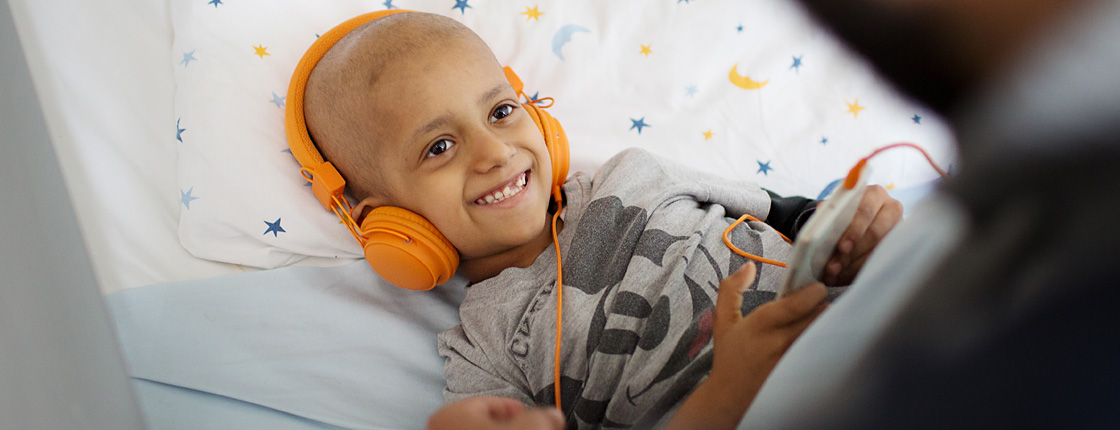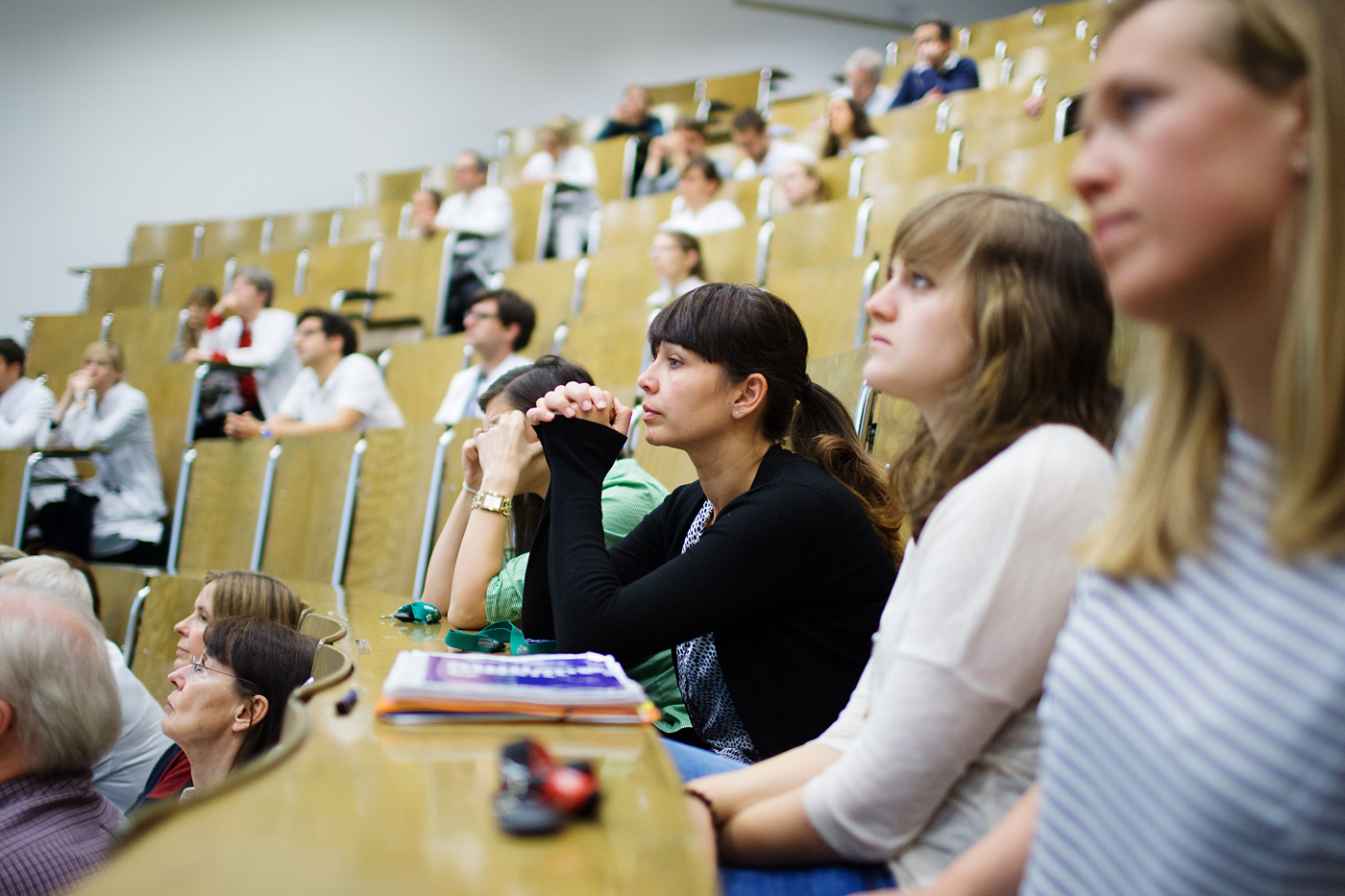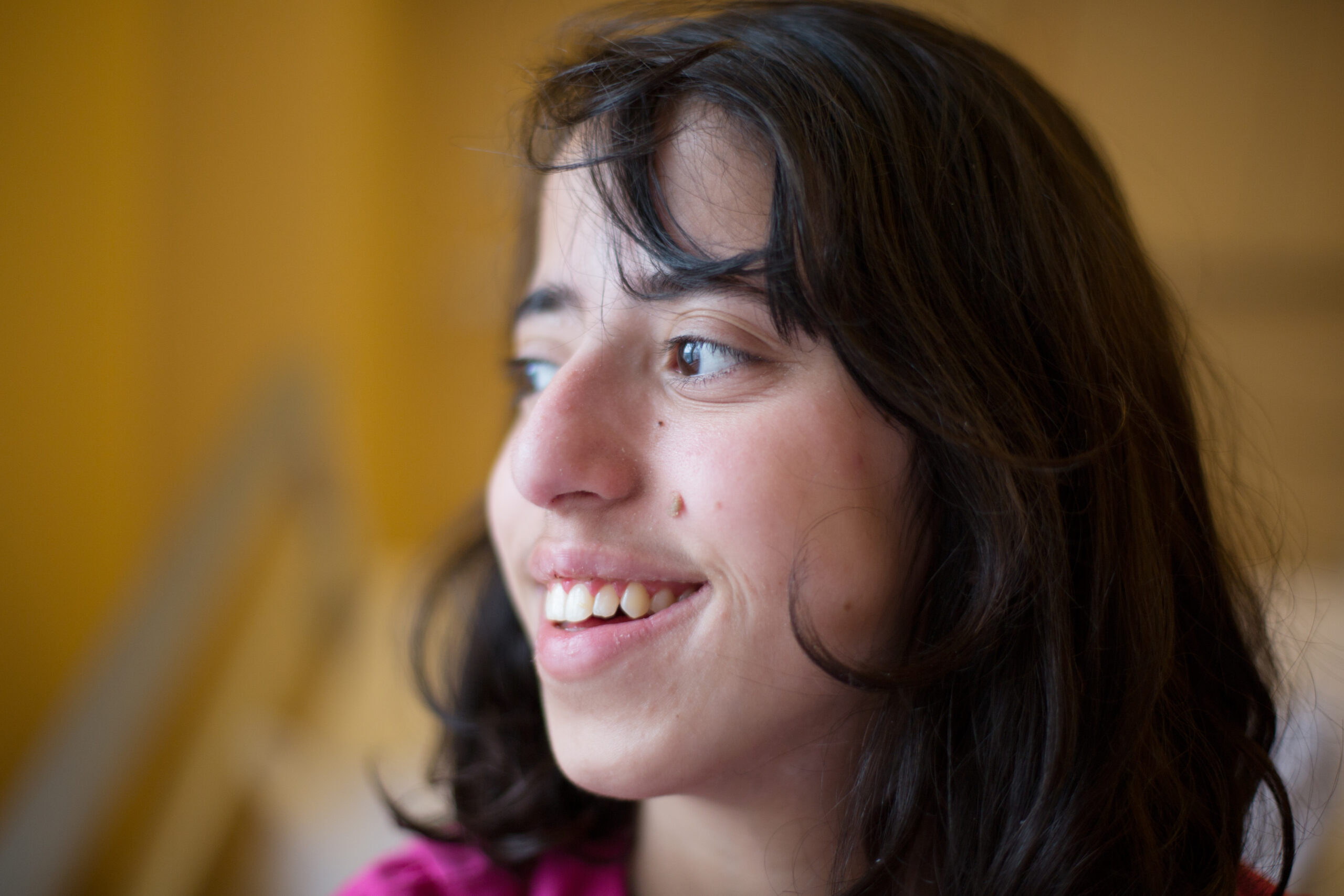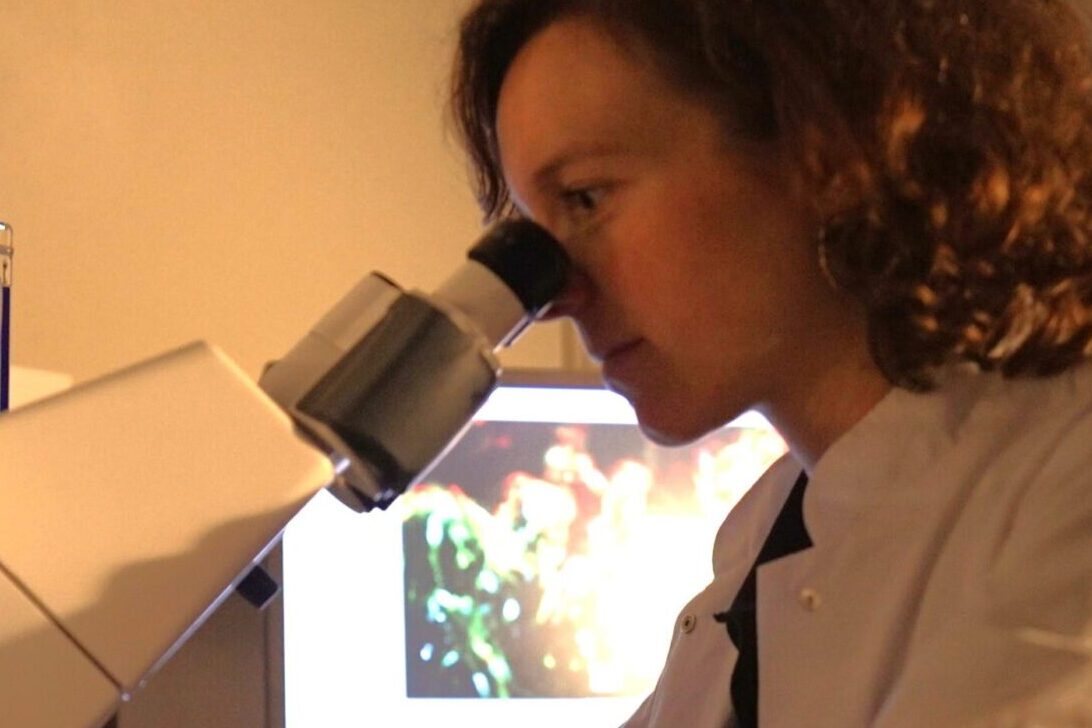Frequently asked questions about the Care-for-Rare Foundation

Do you have questions about the foundation, funding guidelines or administrative aspects of the foundation's work?
We are committed to transparent communication with the public and our donors. Therefore, we have compiled some answers to frequently asked questions below to provide you with detailed information about the foundation and how we work. If you have any further questions, please feel free to contact us at any time: info@care-for-rare.org.
The foundation's profile
We help children with rare diseases – worldwide.
In accordance with the guiding principle “from discovery to cure,” we support a global alliance of physicians and scientists form many institutions and countries in order to identify the genetic causes of rare diseases and to develop innovative therapies.
• Every child should have access to medical care and a chance of being cured.
• There is still no medical aid for 95% of all rare diseases.
• Only scientific discoveries can expand knowledge and nourish hope for all those children who cannot yet be cured today.
• The foundation is located at Dr. von Hauner Children’s Hospital (LMU Munich).
• The foundation also acts globally by carrying out cutting-edge research in conjunction with renowned partners worldwide.
• Children suffering from rare diseases
• People around the world hoping for advances in medicine – not only for rare diseases, but also for common diseases
• Scientific communities in academia and industry
Common questions about your donation:
The Care-for-Rare Foundation is a foundation under civil law with legal capacity and serves charitable purposes as defined in the Articles of Association (in German).
As an independent foundation with legal capacity, the Care-for-Rare Foundation is independent of the university and the university hospital. However, the Care-for-Rare Foundation has its funding focus in Munich and therefore supports in a special way the clinical work as well as science, research and teaching at the Dr. von Haunerschen Kinderspital, one of the oldest and most renowned children’s hospitals in Germany. A common mission in the interest of sick children results in good and friendly cooperation.
Unfortunately, no. Unlike many other charitable foundations, the Care-for-Rare Foundation, which was founded out of medicine and science, was initially endowed with moderate foundation assets, whose financial returns are very limited in times of low interest rates. For this reason, the Care-for-Rare Foundation is soliciting further contributions in the form of donations and endowments.
The Care-for-Rare Foundation primarily funds projects at renowned institutions such as the Dr. von Haunersche Kinderspital of the LMU, which have an efficient system of quality assurance. Funded project sponsors are required to submit accurate budget and project plans and document project progress. Upon completion of a project, a written report will be reviewed. In exceptional cases, individual needy persons will be benefited (e.g., by covering treatment costs). In these cases, the costs (medication, hospital bills, etc.) are also documented.
The use of funds for the intended purpose and in a timely manner is regularly checked by the state financial administration as part of the review of non-profit status. The Care-for-Rare Foundation provides information about the projects supported and the funds used in a biannual newsletter, on the Foundation’s website and in other articles for the press, film, radio and social media.
The ongoing accounting as well as the annual financial statements of the Care-for-Rare Foundation with profit and loss statement and balance sheet are prepared by an independent external tax consultancy.
The so-called donation seal is awarded by the German Central Institute for Social Issues in Berlin (DZI). Both the initial application and the maintenance of this donation seal cause not inconsiderable financial and administrative effort. The Care-for-Rare Foundation does not intend to use donations or other funds for this purpose. The administrative or advertising costs incurred by the Foundation are not covered by donations, but by project lump sums from the major donors.
The Care-for-Rare Foundation has committed itself to adhering to the Principles of Good Foundation Practice of the Association of German Foundations. This voluntary commitment serves as the basis for effective and altruistic foundation action.
In principle, the administrative costs of the Care-for-Rare Foundation are not covered by donations. The Foundation receives overhead lump sums from some corporate bodies and project funding organizations to secure the administrative work. The Foundation’s administrative costs are financed from these sources from our partners, as well as from interest income. Other sponsors also provide us with material and services free of charge.
In accordance with its statutes, the Care-for-Rare Foundation supports the promotion of science and research in the field of natural sciences, in particular medicine, vocational education including student aid, and charitable purposes in Germany and abroad. In its five funding lines Care-for-Rare Alliance, Academy, Awareness, Awards and Aid, it defines sustainable funding projects. One focus is on the promotion of science and research in Germany, especially at the Dr. von Haunerschen Children’s Hospital at Ludwig Maximilian University in Munich.
Donations received on the occasion of a circumscribed fundraising campaign are allocated 100% and without deductions to the specified project (e.g. public appeals to finance treatment costs for needy children).
From an amount of 200.01 euros, the tax office requires a donation receipt. The Care-for-Rare Foundation sends these forms for the tax office without being asked, provided that the name and full address are available. Due to data protection regulations, banks are not authorized to forward this donor data to the Care-for-Rare Foundation. This means that you must include your complete address on the transfer form and ensure that this information is legible.
Up to an amount of 200 euros, it is sufficient if you submit a simplified proof of donation together with the cash deposit slip or the booking confirmation of a bank, for example in the form of a bank statement, to the tax office with your tax return. You can download a simplified donation receipt here free of charge (in German).
However, if you would like a donation receipt for donations of up to 200 euros, we will be happy to issue and send one to you upon request.
Yes. Of course, we also welcome donations in the form of an inheritance. As a foundation, the Care-for-Rare Foundation is legally capable of inheritance. It is therefore possible without further ado to appoint the Care-for-Rare Foundation as heir or legatee by means of a will.
If you are thinking about making a bequest for a better future, we would be pleased to receive your message to info@care-for-rare.org.
The Care-for-Rare Foundation provides funding on a project-by-project basis. Most of the funded projects are of a long-term nature, so that the space for new project funding is limited.
The Foundation regularly invites scientists to apply for two funding awards, the Dr. Holger Müller Award and the Care-for-Rare Science Award, through a competitive selection process. Announcements of the awards are made via our website, social media, and in scientific journals.




